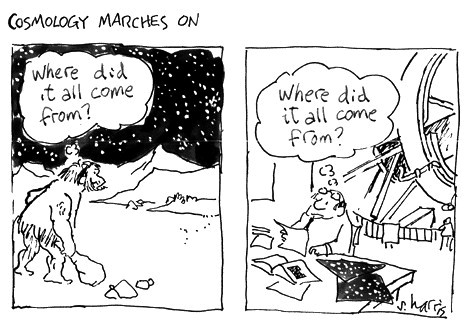If one is focused on the spread of the gospel in America there are far larger demographics to be concerned with. Catholics number just over 20%; there are more Mormons in the US than atheists and, since being here, I have met many more protestants who do not believe the gospel than atheists who do not believe in God.
Yet evangelical Christians are often focused on atheism as its opposite force. We use it as the default interlocutor. The question, when thinking about persuading someone of the truth of Christianity, is always how we might answer objections from atheists. All the classic objections–the problem of evil, epistomological skepticism, the moral objection–are all posed as if atheism is the alternative to Christianity.
So, why are Christian apologists so set on arguing for theism and against atheism? In my opinion it goes back to enlightenment battles in the 17th and 18th Centuries. It was in the enlightenment period in Western culture that these two views came to blows. Apologists such as Butler and Baxter went up against Hobbes and Spinoza. The battle concerned whether or not a given worldview–deism, theism or atheism–lined up with a neutral standard – reason.
The question was whether theism or atheism was most reasonable. An atheist was, according to James Beattie, “A reasonable creature, who disbelieves the being of God, or thinks it inconsistent with sound reason, to believe that the great First Cause is perfect in holiness, power wisdom, justice, and beneficence,–is a speculative atheist; and he who endeavours to instill the same belief in others, is a practical Atheist”
Christian apologists assumed that the answer to the atheist (apart from public derision) was to argue that theism was more rational than atheism. Once that hurdle was jumped and a person is persuaded that God (or more basically, a first cause) exists, then the Christian can begin to provide some support for the idea that Jesus is God (evidence for the resurrection, for example).
The problem, I think, was the narrow focus of the first step – is there or is there not a god? But, given that only a few among us think that there is no god, the question appears less than relevant to most people. It is also slightly reducing what Christians are defending. It is, after all, the whole Christian worldview that requires a defense not merely whether or not an unspecified deity exists.
I think contemporary apologists are moving away from this two step approach and beginning to look for another way to contend for the faith in our multi-religious context. Many of these arguments begin not with the standard of rationality, but with accounting for it. Whereas many previously focused on beginning with the assumption of reason and then using it to demonstrate the existence of God by means of reason, many now make arguments from reason itself to God.
Nevertheless, many of these arguments remain committed to placing an atheist in the objector seat. What I think we need to do is recognize the empirical reality of our context – it is multi-religious and the most common objections come from those raised in marginally protestant contexts.
My prof at TEDS, Dr Netland, was formerly a missionary in Japan. He notes that apologetics has been replaced in missions with “inter-religious dialogue” largely because western apologetics has focused on atheism. There are relatively few apologists focused on religious pluralism and, consequently, relatively few resources for missionaries. The irony is that the west itself is more multi-religious than anywhere else on the planet. It is here, of all places, that we should have an apologetic aimed at responding to objections from a plurality of sources and, more positively, showing the incoherence and irrationality of opposing worldviewS not merely the atheistic worldview.


